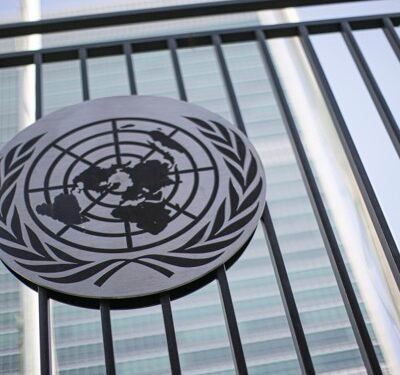The United Nations voted to adopt a historic resolution on how to safely manage and mitigate the risks posed by artificial intelligence technologies on Thursday morning, part of a monthslong negotiation effort spearheaded by the U.S. government to establish an international consensus on AI usage.
Biden administration officials confirmed on a Wednesday press call that the resolution, titled “Seizing the opportunities of Safe, Secure and Trustworthy Artificial Intelligence Systems for Sustainable Development,” mirrors President Joe Biden’s October 2023 executive order on AI, which prioritizes a human-centric and rights-driven approach to AI software development and deployment. It establishes a set of global norms that outline how to best adopt AI while protecting human rights.
“This resolution encourages guardrails to keep people safe,” a senior administration official said on the call. “It encourages protecting personal data, strengthening privacy policies and monitoring AI for risks, and it encourages compliance with international human rights laws.”
Informing the resolution are over 120 countries offering “thousands” of suggestions, according to the official. So far, about 97 nations have agreed to cosponsor the resolution, including China, one of the U.S.’s chief geopolitical rivals.
In addition to adopting mitigating measures for sophisticated AI software that is deployed publicly, the resolution specifically looks to harness the technology’s ability to advance fields like sustainability, economic empowerment, health and energy solutions.
Critically, the terms included in the resolution prioritize a diverse approach to AI regulatory agreements that are culturally inclusive.
“While the United States spearheaded this AI initiative, we collaborated very closely with our allies and partners, engaging a broad range of countries at every stage,” the official said. “And importantly, this resolution also reflects perspectives from civil society and from the private sector.”
The resolution builds on both U.S.-based domestic documents — like the executive order — and international forums, such as the Bletchley Declaration on AI safety, an international agreement made at the AI Safety Summit 2023 in England. Future work on global AI policy and standards will occur within the UN, namely the International Telecommunications Association and UNESCO, the official confirmed on Wednesday.
“Achieving consensus on these principles is historic,” the official said. “But as others have noted, this is the beginning of a global conversation at the UN. We are going to continue working with other countries and the UN itself to foster dialogue around AI’s risks and opportunities.”









